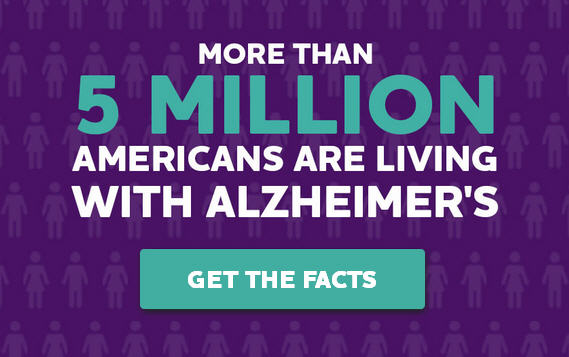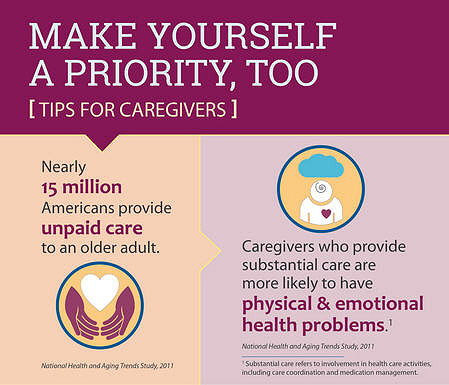(UCSF Memory and Aging Center) Posterior cortical atrophy (PCA), also called Benson’s syndrome, is the visual variant of Alzheimer’s disease. The disease causes shrinkage (atrophy) of the back part of the brain, causing a progressive decline in vision. People with PCA may often go to see an eye doctor first, thinking that their difficulties are due to a problem with their eyes and that they may need new glasses. Visual impairment commonly develops as people get older, and in most cases a decline in vision is due to this natural aging process. In people with PCA, the visual problems are not due to problems with their eyes. Rather, the shrinking brain can no longer interpret and process the information received from the person’s healthy eyes.
In the vast majority of PCA cases, the underlying cause is Alzheimer’s disease, and the brain tissue at autopsy shows an abnormal accumulation of the proteins amyloid and tau that form plaques and tangles as is seen in Alzheimer’s. Although PCA is almost always caused by Alzheimer’s disease, it can also be due to other diseases including dementia with Lewy bodies and Creutzfeldt-Jacob disease. PCA is thought to affect less than 5% of people with Alzheimer’s disease, although epidemiological studies are lacking and PCA has been under-recognized in the past.
Signs and Symptoms of Posterior Cortical Atrophy
Early symptoms of posterior cortical atrophy include blurred vision, difficulties reading (particularly following the lines of text while reading) and writing with non-visual aspects of language preserved, problems with depth perception, increased sensitivity to bright light or shiny surfaces, double vision and difficulty seeing clearly in low light conditions. The patient may have trouble accurately reaching out to pick up an object. As the disorder progresses, other symptoms evolve such as getting lost while driving or walking in familiar places, misrecognition of familiar faces and objects, and rarely visual hallucinations. Calculation skills and the ability to make coordinated movements are affected in some cases.
While there is no definitive test for PCA, neuropsychological evaluation of cognitive skills, blood tests, brain scans and a neurological exam may help to exclude potentially treatable causes such as infection, inflammation or brain tumor.
Progression of Posterior Cortical Atrophy
PCA tends to affect people at an earlier age than typical Alzheimer’s disease, with individuals often being in their mid-fifties or early sixties when they experience the initial symptoms. As the disease progresses, word finding, day-to-day memory and general cognitive functions may become affected, and people develop the symptoms of typical Alzheimer’s disease. In the later stages of the disease, people may experience jerking movements of their limbs and even seizures. Some people live approximately the same length of time as individuals with typical Alzheimer’s disease (on average 10-12 years following the onset of symptoms) while others live with the condition for longer.
Treatment of Posterior Cortical Atrophy
Although no cure for posterior cortical atrophy exists, several medications as well as many non-pharmaceutical approaches can potentially improve daily functioning and quality of life. Patients with posterior cortical atrophy can often benefit from physical and occupational therapy.
Cholinesterase inhibitors approved for Alzheimer’s disease, like donepezil (Aricept®), rivastigmine (Exelon®) and galantamine (Razadyne®/Reminyl®), can help the symptoms of PCA by boosting the function of brain cells to compensate for damage caused by Alzheimer’s disease.
Patients experiencing depression, irritability, frustration and a loss of self-confidence may benefit from antidepressant medication.
Resources for Posterior Cortical Atrophy
- Alzheimer’s Disease Education and Referral (ADEAR) Center website provides current, comprehensive Alzheimer’s disease information and resources from the National Institute on Aging (NIA).
- Alzheimer’s Disease Fact Sheet
- Find an Alzheimer’s Disease Center (ADC)
- The Alzheimer’s Association is a voluntary health organization in Alzheimer care and support and a private, nonprofit funder of Alzheimer research.
- Family Caregiver Alliance
- Posterior Cortical Atrophy Support Group website
- Posterior Cortical Atrophy Forum UK website
- Living with Posterior Cortical Atrophy online group
- Home safety tips and recommendations for people who have problems with their vision due to dementia

http://memory.ucsf.edu/education/diseases/pca
© 2015 The Regents of the University of California







